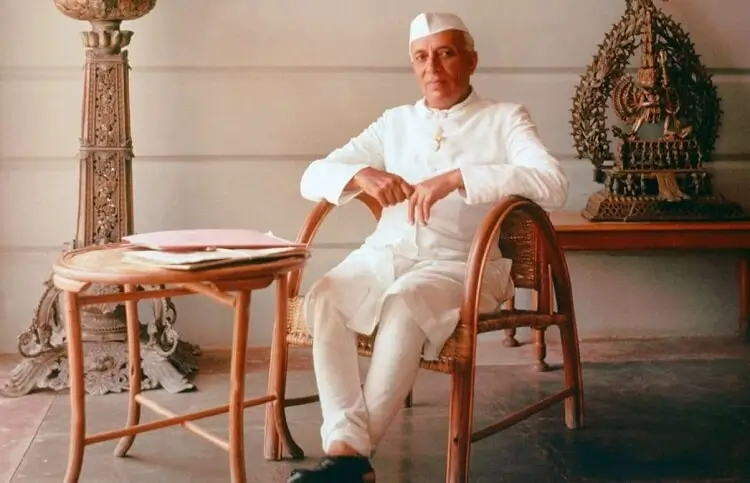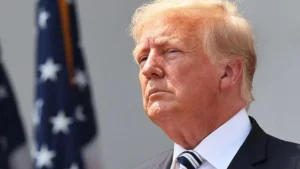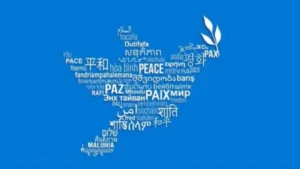India got its freedom from British rule on 15th August 1947. After independence, the country needed a strong leader to guide it on the path of progress and development. A great leader was chosen to become the first Prime Minister of India. He played an important role in shaping the nation’s future, helping build schools, industries and modern ideas for a better tomorrow.
Who is the Prime Minister?
The Prime Minister is the head of the government in India. He is usually the leader of the political party that wins the general election and is appointed by the President for a term of five years. Although the Prime Minister is the main government leader, the real executive authority is carried out by the Council of Ministers, which he leads. Together, they make and implement important decisions for the country.
The Prime Minster acts as a leader of the house of chamber of Parliament, generally the Lok Sabha. In this role, the Prime Minster is tasked with representing the executive inn the legislature.
Functions of a Prime Minister
- Head of Government: Leads the executive branch of government.
- Policy Formulation: Develops and implements national policies.
- Cabinet Leader: Chairs cabinet meetings and coordinates government departments.
- Legislative Role: Presents bills and policies to parliament.
- Foreign Affairs: Represents the country in international relations.
- Crisis Management: Handles emergencies and national crises.
- Public Representative: Communicates government decisions to the public.
- Advisor to the Head of State: Offers counsel to the monarch or president.
Who was the First Prime Minister of India?
Jawaharlal Nehru was the first Prime Minister of independent India. He played a big role in India’s freedom struggle and was a chose follower of Mahatma Gandhi. People knew him as “Chacha Nehru” because of his love for children. He was a strong leader who helped shape modern India.
Key Details of Jawaharlal Nehru
- Birth date: 14th November 1889
- Birth place: Allahabad, North- Western Provinces, British India
- Parents: Motilal Nehru, Swarup Rani Nehru
- Death: 27th May, 1964 at New Delhi, India
Early Life and Education of Jawaharlal Nehru
Nehru was born on 14th November 1889 in Allahabad (now Prayagraj) into a rich family. His father, Motilal Nehru, was also a well-known political leader. His mother’s name was Swarup Rani Thussu.
He had two younger sisters. Vijay Laxmi Pandit, one of them, later became the President of the United Nations General Assembly. The other sister, Krishna Hutheesing, was a writer.
Nehru was taught by private tutors at home. He was influenced by his tutor. Ferdinand T. Brooks and later by Annie Besant who introduced him to the Theosophical Society.
Jawaharlal Nehru as 1st Prime Minster of India
Jawaharlal Nehru became the first Prime Minister of Independent India on August 15, 1947. As Prime Minister of India, he played a crucial role in shaping the nation’s policies and governance. Nehru’s leadership focused on nation- building, socio-economic reforms and promoting secularism and democracy. He championed industrialization, agrarian reforms and the establishments of institutions like the Planning Commission. Nehru’s foreign policy emphasized non-alignment and peaceful coexistence. However, his tenure faced challenges including the integration of princely states, conflicts with Pakistan and the Indo-China border dispute. Despite these challenges, Nehru’s visionary leadership laid the foundation for India’s growth as a modern, democratic nation. He served as Prime Minister for the consecutive 17 years until his death on 27th May 1964.
Major Contributions of Pandit Jawaharlal Nehru
Jawaharlal Nehru made many important contributions to India. He worked for freedom, supported education, women’s rights and helped build a strong and modern nation. Here are some of his major contributions:
Freedom Fighter
After coming back to India, Nehru joined the Indian National Congress in 1912. He started supporting Mahatma Gandhi and worked in movements like the Non-Cooperation Movement (1920) and Salt Satyagraha (1930). He was also jailed many times for raising his voice against British rule.
Leading India After Independence
After India became free in 1947, Nehru worked hard to build a new India. He wanted to make India strong in science, education and industry. He also helped in forming a strong democracy.
Hindu Code Bills
Nehru helped bring laws to give more rights to women. These laws included:
- Ending polygamy (more than one wife)
- Making divorce rules
- Allowing girls to be adopted
- Giving daughters equal rights in family property.
First General Elections in 1952
After the Constitution was ready in 1950, India held its first general elections in 1952. Under Nehru’s leadership, the Congress party won the elections and formed the government.
Awards presented to First Prime Minster: Jawaharlal Nehru
Jawaharlal Nehru, the first Prime Minister of India, received several prestigious awards, these are:
- Bharat Ratna in 1955
- Lenin Peace Prize in 1955
- Order of the Yugolsav Star in 1954
- An award was also named after him, Jawaharlal Nehru Award for International Understanding, established in 1965.
Institutions named after 1st Prime Minister: Jawaharlal Nehru
Several colleges and institutions named after him. Some of these are as follows:
- Jawaharlal Nehru University
- Jawaharlal Nehru Technological University
- Jawaharlal Nehru Medical College
- Jawaharlal Nehru Centre for Advanced Scientific Research
- Jawaharlal Nehru Architecture and Fine Arts University
- Jawaharlal Nehru College of Engineering



 Trump Slaps 10% Global Tariff on All Imp...
Trump Slaps 10% Global Tariff on All Imp...
 From April 1, Toll Booths Go Fully Digit...
From April 1, Toll Booths Go Fully Digit...
 International Mother Language Day 2026: ...
International Mother Language Day 2026: ...








